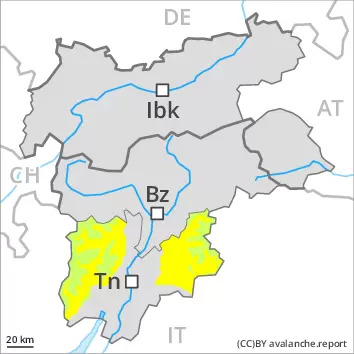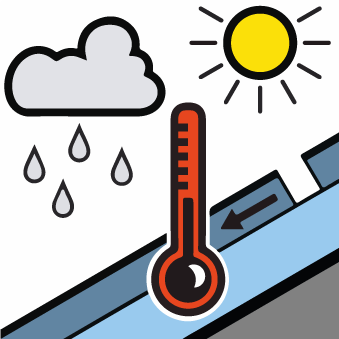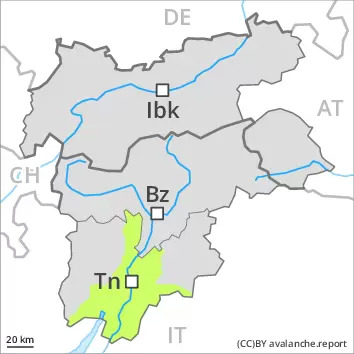
Danger level
 | 2600m |
|  |
|  | ||||
|  |
|  |

Small and medium-sized moist and wet avalanches are possible as a consequence of warming.
As a consequence of warming and solar radiation, the natural activity of avalanches will increase, in particular on very steep slopes below approximately 2600 m, and at the base of rock walls. In addition in particular at low and intermediate altitudes, small and medium-sized gliding avalanches are possible, especially on very steep grassy slopes.
Wind slabs can in some places be released, mostly by large loads and reach medium size. Caution is to be exercised in particular adjacent to ridgelines and in gullies and bowls on very steep slopes at high altitude.
Snowpack
dp.10: springtime scenario
As a consequence of mild temperatures and very cloudy skies the snowpack can not consolidate during the night. The surface of the snowpack will already be soft in the early morning. The high humditiy will give rise from the late morning to a loss of strength within the snowpack below approximately 2400 m.
At elevated altitudes the situation is more favourable. The somewhat older wind slabs have bonded well with the old snowpack. The old snowpack will be generally stable.
Tendency
Wet and gliding avalanches are the main danger.




